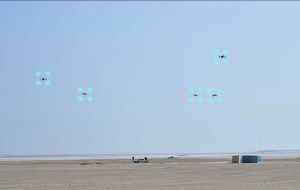Leading companies have sent an open letter to the entire robotics industry, encouraging them not to weaponize robots.
In the letter, the companies said they “believe that adding weapons to robots that are remotely or autonomously operated, raises new risks of harm and serious ethical issues.”
“We pledge that we will not weaponize our advanced-mobility general-purpose robots or the software we develop that enables advanced robotics and we will not support others to do so,” the letter signed by Boston Dynamics, Agility Robotics, ANYbotics, Clearpath Robotics, Open Robotics, and Unitree Robotics added.
This comes as fears have been increasing for years about how militaries and law enforcement are planning to deploy a new breed of highly mobile and autonomous robots.
Robots eligible for military use include quadrupedal bots and bipedal machines, which can walk like humans.
For their part, The New York Police Department and the French Army have tested the famous “Spot” robot developed by Boston Dynamics in remote military tracking operations.
Boston Dynamics’ early development can almost entirely be credited to US military funding, as the US Army thought it could use the company’s experimental, larger robots as pack mules, toting equipment for infantry troops, before scrapping the project due to controversy surrounding the militarization of robots.
However, the companies did not take a hostile position towards the existing military robotic applications, used by states and governments to defend themselves and enforce their laws.
In addition, the letter leaves open the possibility of the machines being used for surveillance and reconnaissance alongside army units or police officers.
Notably, the letter’s signatories do not include US firm Ghost Robotics, which also makes quadrupedal bots, and has focused on military and government sales.
The company’s bots are being tested by both the US Space Force and US Air Force to patrol the US border with Mexico, and these bots have been fitted with guns by arms manufacturers.
Although this can be considered a positive move aimed at slowing down the robotic arms race, it will not prevent the widespread adoption of armed robotic technologies completely.













